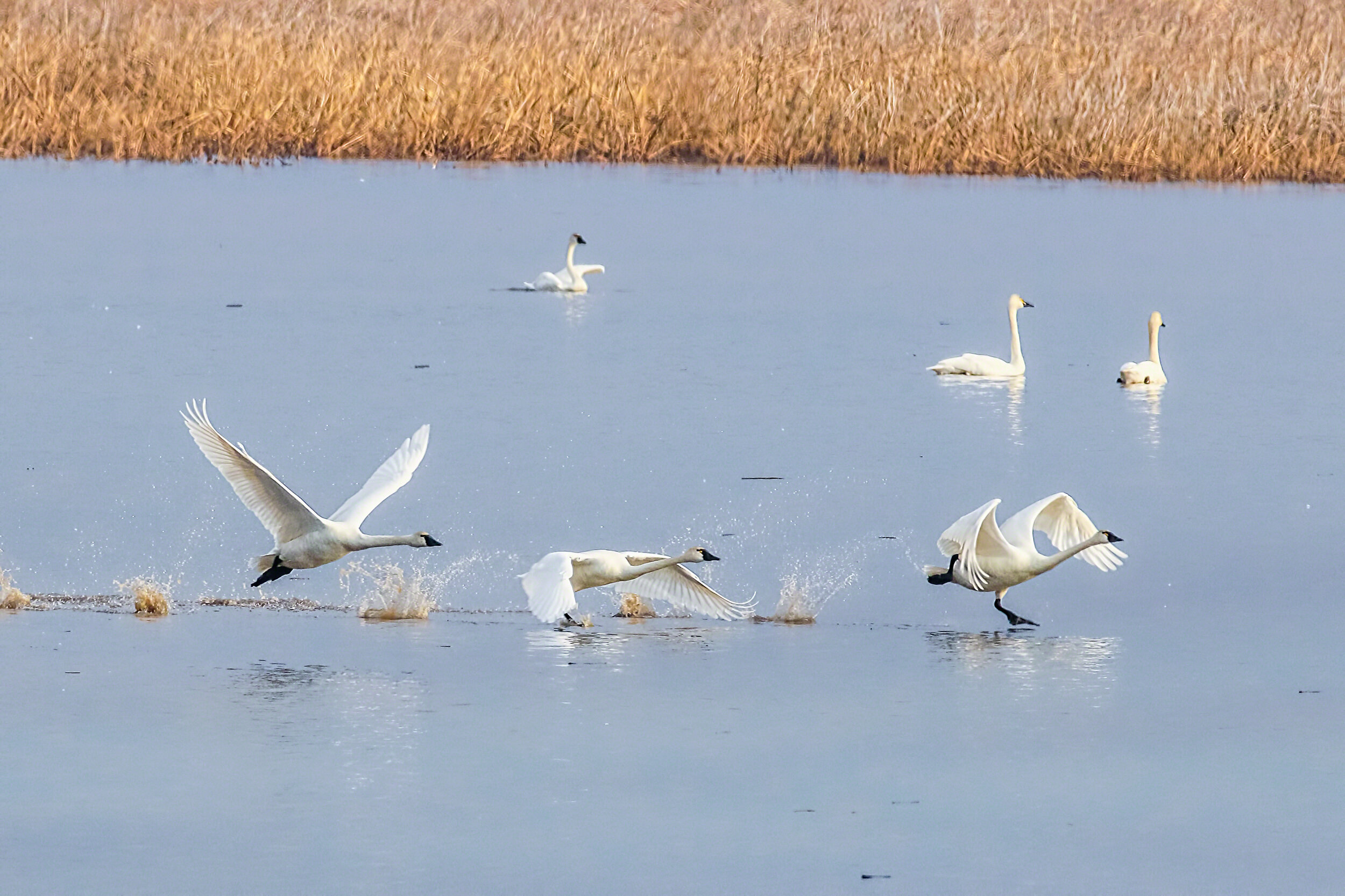The most important take-away from this post: Birds need your help! Share your support for strong bird protections and reversing the Migratory Bird Treaty Act rollback today.
protect birds today.
In the last blog, Geoffrey Chaucer of Canterbury Tales fame makes the connection between birds and Valentine's Day. In one of the grimmest and, to my way of thinking, most modern of those tales, The Pardoner's Tale, he states and dramatizes one of the oldest moral teachings. Radix malorum est cupiditas. It doesn't take much Latin to recognize this as "The root of all evil is greed."
And what does this have to do with birds? Too much.
In the last days of the Trump administration, the Department of Interior ended some protection of migratory birds. The rollback consisted of removing penalties for actions that killed or injured birds but were perpetrated without the intention of killing birds. One past example of such an act was popularly cited: the Deepwater Horizon oil disaster which released millions of gallons of oil and destroyed hundreds of thousands of birds (and many other creatures). One that resonated with me would be a person or company who deliberately used a banned pesticide. Even if that poison killed many birds, the perpetrator would not be liable under the Trump Administration's revised regulations because the intent was to kill some sort of pest, not birds. This loss of protection changed the interpretation of the Migratory Bird Treaty Act that has protected migratory birds for decades.
Photo by Monica Hall
Back to evil and greed for a moment. This maxim has attracted some debate over interpretation for centuries, ever since it appeared in Latin. Some argue that the saying refers to cupidity, a desire for all earthly things. But in the Greek as it appears in the Epistle to Timothy and was later translated into Latin, the translation is to greed, in particular greed for money.
And that's what would be killing more birds. Industries such as oil spend money to protect birds from some of their operations and were subject to big fines if they killed lots of birds. Businesses didn't want to spend that money or to be subject to those liabilities. They wanted the rule changed to save money. Too bad, birds.
One could object that these businesses might maintain their protective measures. Many such practices are in place and surely, oh yes surely, businesses would not want the bad publicity that comes with killing birds. That is NOT what the Department of Interior thought. In the assessments that preceded this rollback Trump's Department stated that many companies would stop the bird-protecting measures they had in place.
Ruby-throated hummingbird. Photo by Monica Hall
The Biden Administration is trying to stop the rollback and maintain the protections birds currently have. They have delayed the change and have started a new phase of rule-making to protect birds. They are asking for public comment. We need an overwhelming stack of comments from scientists and down-home bird lovers and conservationists-- us- to ask, beg, demand that killing birds through negligence or carelessness remain illegal. Please go to National Audubon’s website, which will help you make those comments.
For an excellent summary of this issue, please see the New York Times article here.
While I think persons or companies that kill birds through negligence of one sort or another should be punished and required to offer restitution, punition is not the main point. Prevention is. By the time someone or something pays a big fine under these provisions, hundreds or thousands of birds have died. These protections, if kept in place, will force all but the most lame-brained or callous to design their operations to protect birds. That's what we care about the most.
Written by Topf Wells, Madison Audubon board member and advocacy committee chair





